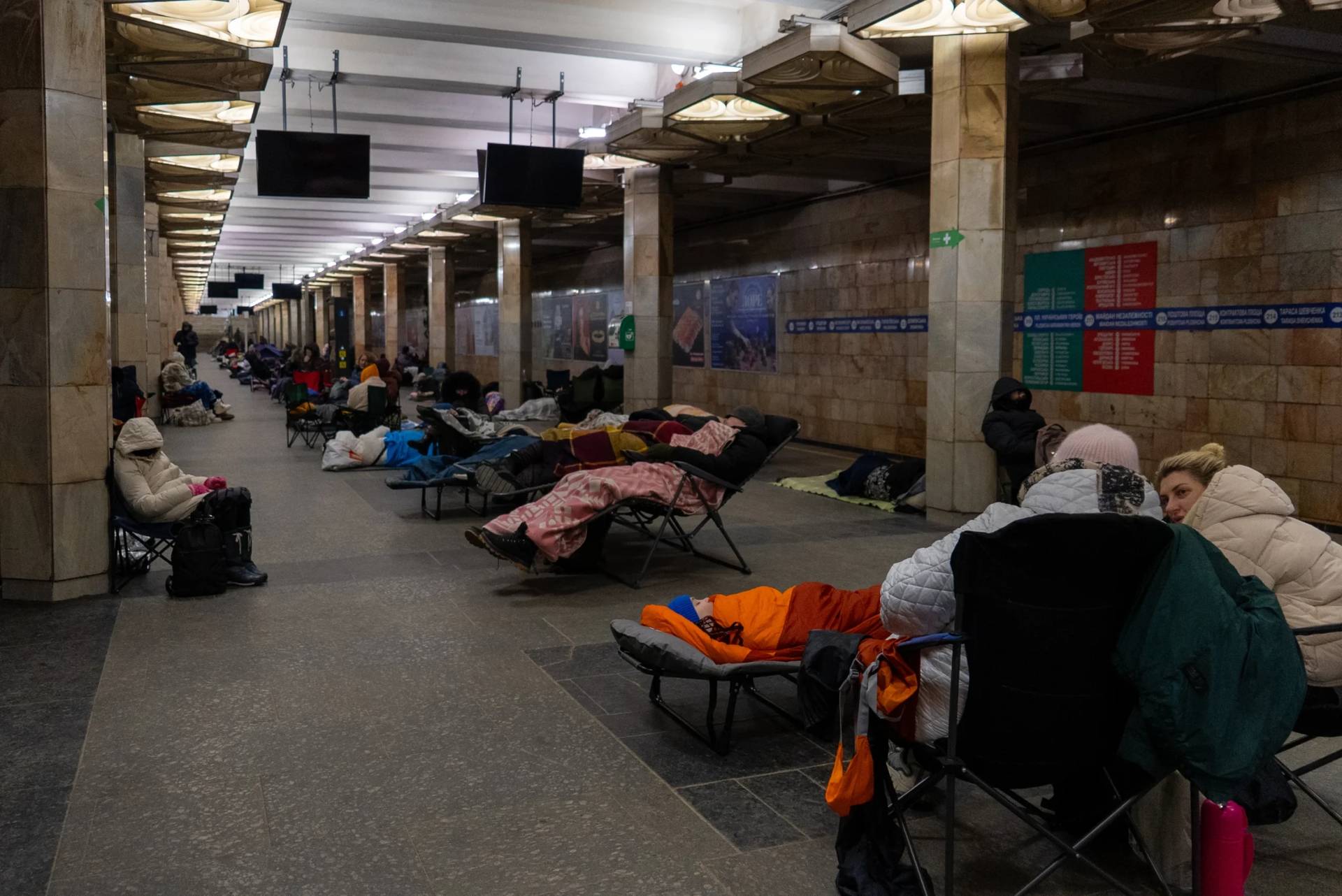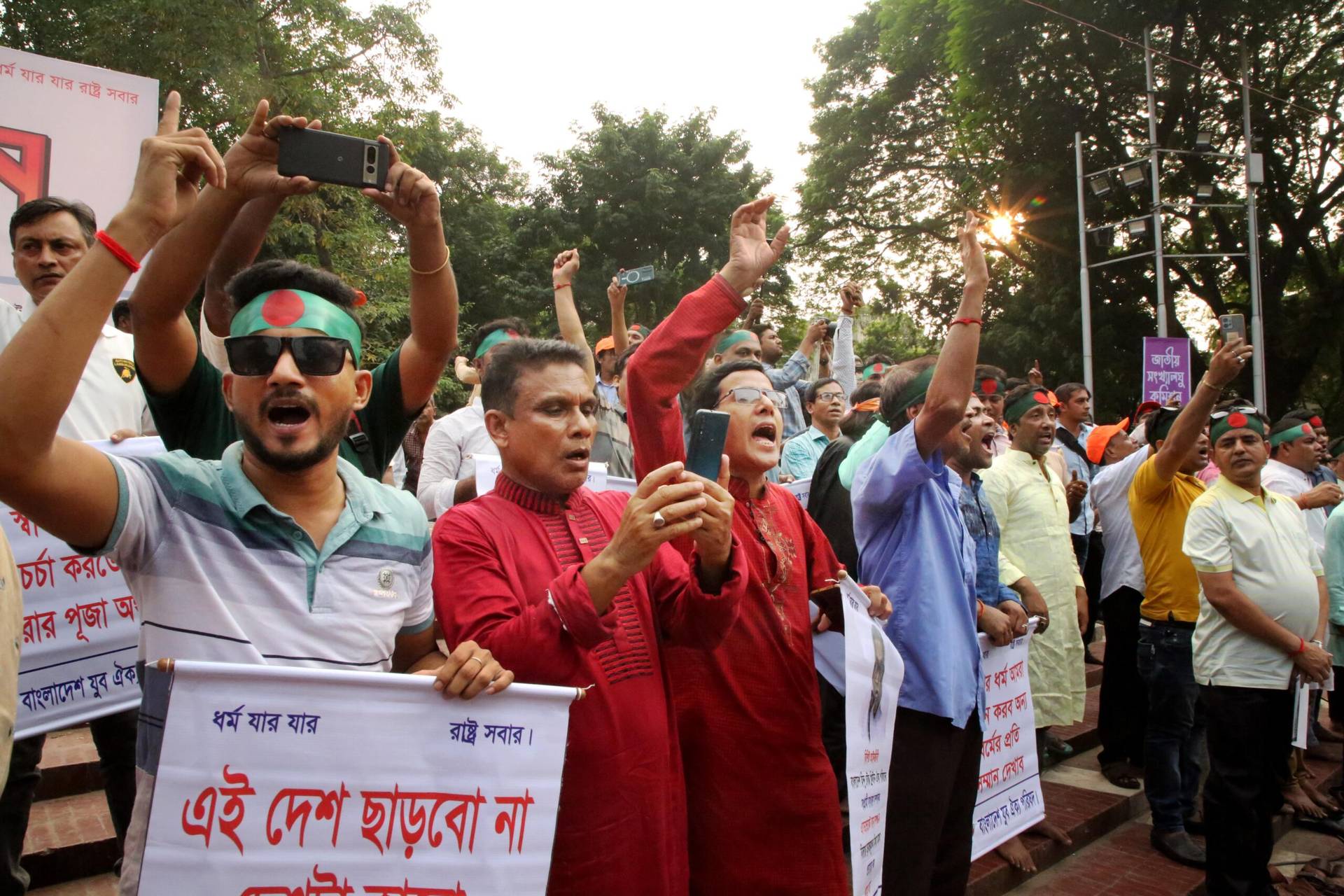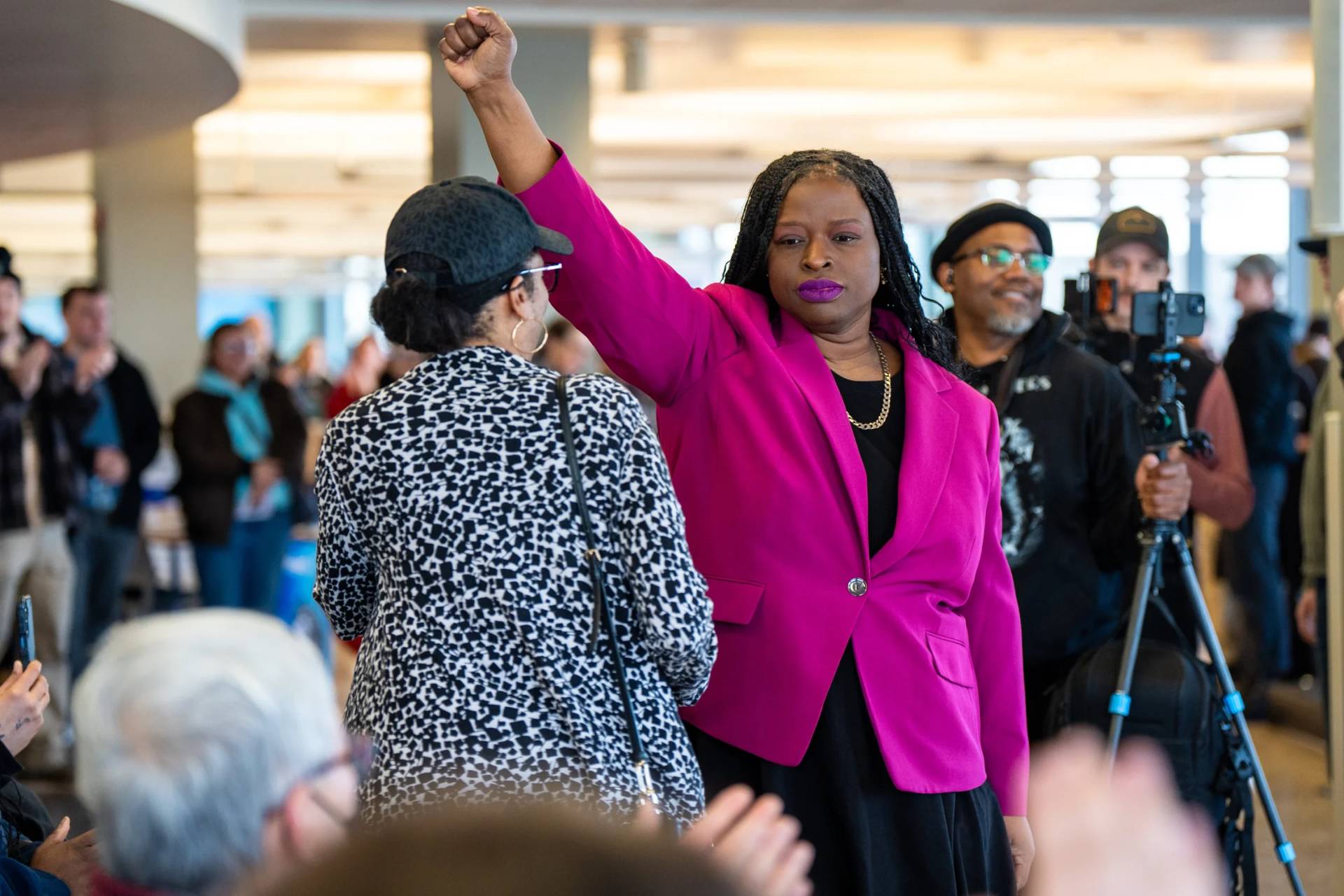“There’s a certain pride in how weird Portland can be, and I think that encompasses the feeling of inclusiveness – it’s like to each their own, try to live your life, don’t hurt anybody else and we’ll probably just love you the same,” Cruz said.

The suspect, Jeremy Christian, has been charged with murder and other offenses.
Many people who paused to pay their respects this week outside the Hollywood/NE 42nd Avenue Station, where the attack occurred, talked about the spiritual, but not religious, values and practices helping them process the horrific event. They emphasized responding with love, echoing stabbing victim Taliesin Myrddin Namkai-Meche’s last words, according to The Oregonian: “Tell everyone on this train I love them.”
Stephanie Kye, a certified nurse assistant who lives near the train station, said she came to the memorial to “unite with everybody.”
“I think that there’s evil, but there’s also goodness, and there are people who will put themselves on the line to help someone else. I don’t think those men expected that, but I feel like as a person of color, I go out into the world and I think that I am alone,” she said. “It was a reminder that people care enough to intervene and that hate’s not going to win.”
Kye said she said a prayer after the attack — not to any particular deity, but because it helped her overcome her fear and get her feelings out.
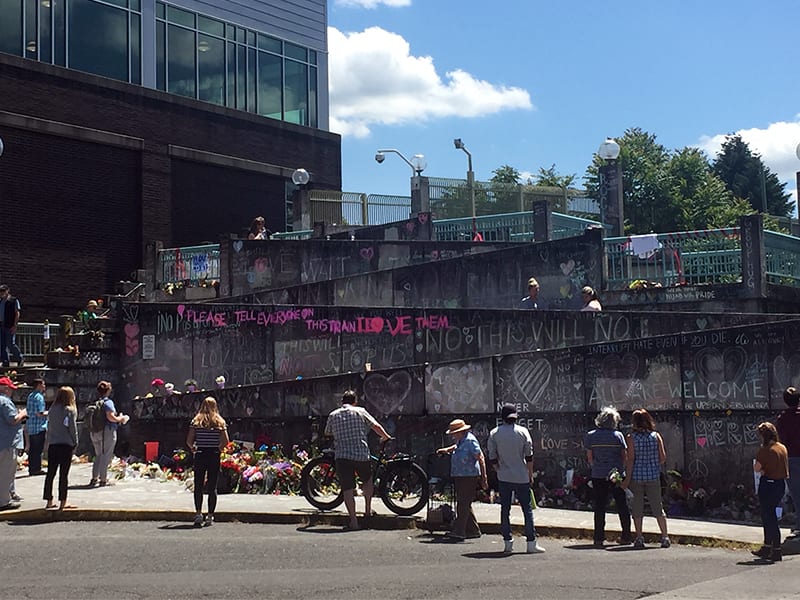
At the train station where the attack occurred, secular altars have sprung up reflecting a collection of spiritual traditions that Portlanders appear to draw on: a Virgin of Guadalupe candle alongside a candle depicting a feline-faced figure labeled “Pietro, faerie saint of passage”; bottles of water, considered sacred by many Native American tribes; pictures of Hindu deities; a letter written in purple crayon and a child’s handwriting illustrated with hearts, stars and smiley faces: “I am Muslim and I thank you.”
Some hinted at simmering tensions.
On the pillars of a neighboring sushi restaurant, “Respect Islam” was written in chalk. In a different color chalk, the word “Islam” had been crossed out and replaced with “including everyone.”
Betsy Toll returned to the memorial a few days after attending a large vigil for the victims outside the train station last weekend. Wearing a strand of mala prayer beads around her wrist, she described “a deep spirituality of my own” that she had come to after 40 years, after growing up Presbyterian, marrying a Jewish man, sitting with Quakers and studying Buddhism and Hinduism.
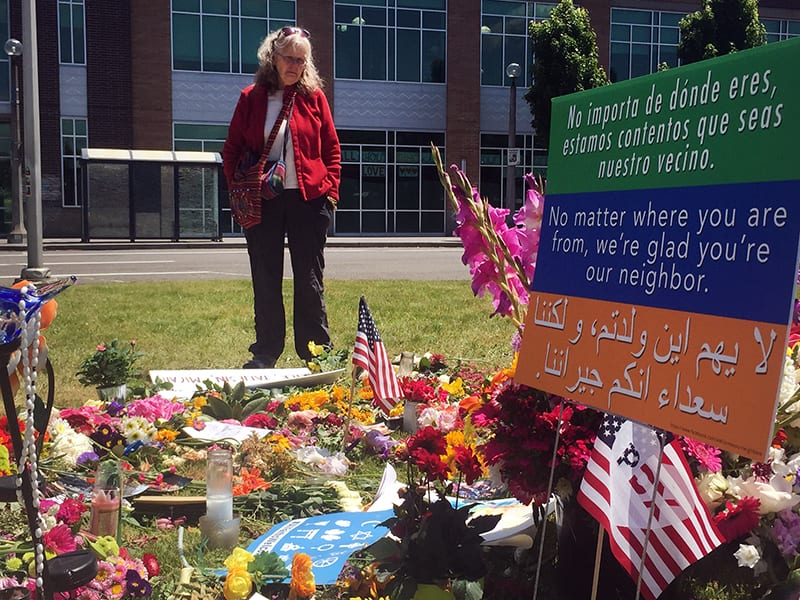
“It’s beautiful to see that these altars are still here and growing and changing,” Toll said.
“My hope is that, everyone whose heart was broken by this terrible event, if we reflect on the goodness and the decency and the kind and courageous impulse that motivated these guys – they were just everyday guys – that we let more of that shine in ourselves. We cannot keep hating each other.”
While fewer Portlanders are affiliated with organized religion, many who are have turned to those traditions in the aftermath of the attack.
An online fundraiser launched by the Muslim Educational Trust and CelebrateMercy, another Muslim group, collected nearly $600,000 to help the families of the victims.
“Muslims usually give overly and generously during the month of Ramadan, so now that I think about it, I’m not surprised that this fundraiser went really quickly, really fast,” said Rania Ayoub of the Muslim Educational Trust.
On a weekday evening, about two dozen people gathered inside the wood-paneled walls and geometric stained-glass windows of First Covenant Church, about a mile from the Hollywood station, where lead pastor Kent Place said the church hoped to give people “space and language for prayer.”
That included lighting candles, singing the old hymn “It Is Well With My Soul” and reading Scriptures such as Jesus’ words, “Greater love has no one than this: to lay down one’s life for one’s friends.” It also included spoken prayers for the victims and their families, for the two girls the assailant had targeted — even for the assailant himself.
Lizabeth Norton of Portland, a nurse educator for a drug company and a member of the Madeleine Catholic Parish, said the church felt like a safe environment “to come and be hurt and angry and try to understand.”
“For me, the real takeaway is: Where can we have compassion and understanding? And it’s really through a faith-based understanding of forgiveness and mercy and understanding and love.”








